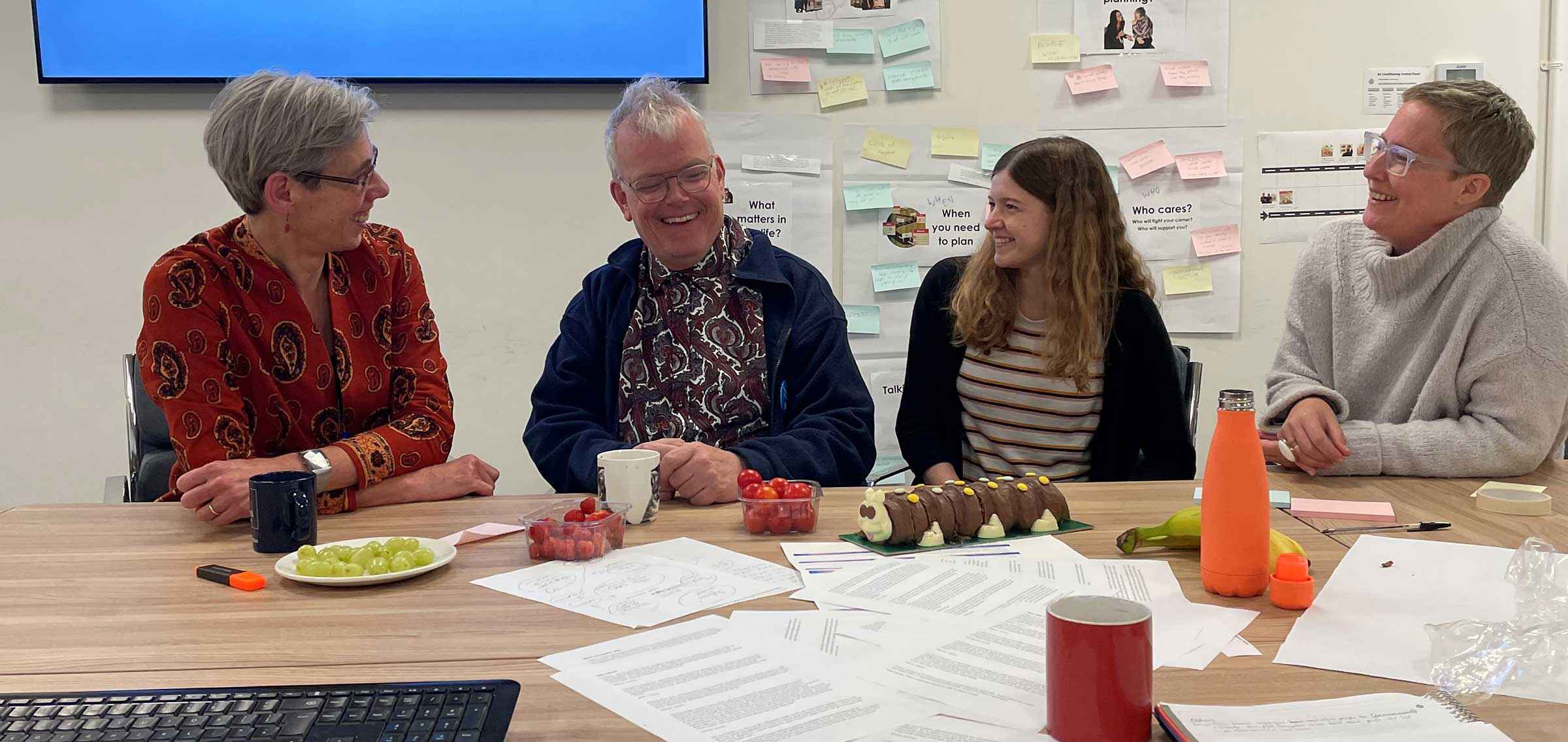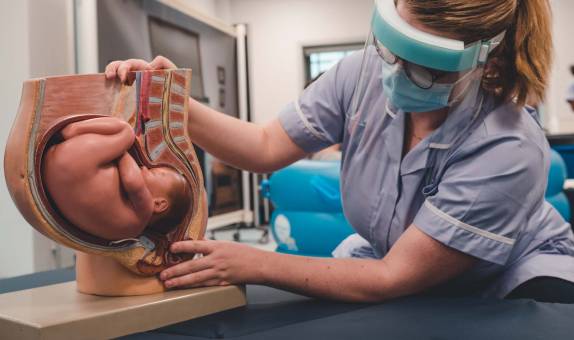We are interested in doing research that matters to people with learning disabilities, related to health and social care needs. We think that research should include people with learning disabilities.
The Learning Disability Research Group shares experiences and ideas about:
- Research we have done
- Research we want to do
- How we can do research together with people with learning disabilities.
The purpose of this group is to share ideas, learn from each other, and support each other in doing inclusive research with people with learning disabilities. We do this during regular lunchtime meetings (usually the fourth Tuesday of the month at 1pm), where we help and encourage everyone to share academic work and ideas in an accessible format, so group members with learning disabilities can join in with the discussions.
Our research interests are wide-ranging, but we have particular expertise in research around dying, death and bereavement; life transitions; and communication.
We believe that research concerned with the lives of people with learning disabilities must be relevant to them and to their families and carers. The group includes highly experienced senior researchers as well as junior researchers and students. Crucially, it also includes researchers and research advisers who have learning disabilities themselves.
Public and Patient Involvement (PPI) is fundamental to the work of this group, and we hold considerable expertise in this area. Along with the Mental Health Research Group, our group is closely aligned with the Centre for Public Engagement, which supports and champions meaningful involvement in research of people with disabilities, mental health problems, patients and carers.
We have collaborative links with local, national and international organisations including service providers, other academic institutions, and professional networks. One example is the close collaboration with the Palliative Care for People With Learning Disabilities (PCPLD) Network, whose popular webinar and podcast series are hosted by our Faculty.
We want to nurture the future generation of researchers, and welcome inquiries and applications from prospective PhD students.





